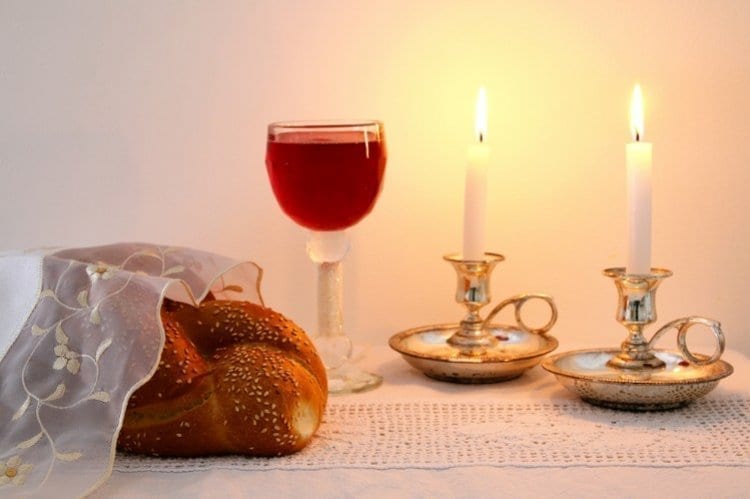Rabbi Shimshon Pincus o.b.m. was once asked how a Shabbat table should look. He answered: You should know clearly that ‘Kiddush’ is like the Mussaf prayer on Yom Kippur which needs concentration and fear. But you can grow from it a lot and the meal itself is like a Yom Kippur eve festive meal which has is a big mitzvah, much holiness and great benefit to the soul. The father is like the high priest in the temple and in truth all Jewish customs should be conducted in this manner.”
Rabbi Pincus continues and emphasizes: “This needn’t be done with strange movements or deeds, rather everything should be done with happiness with a smiley bright face for the rest of the family, and then all the meals will be times of divine service and elevation. For just as the services on the High Holidays establish the level of the entire year, so too the Shabbat brings blessings to all the days coming in peace.”
Rabbi Pincus explains: Shabbat has a mitzvah to enjoy and eat more delicacies. And this is puzzling: such a holy and sublime day of cleaving to G-d, you’d think that a person should separate himself from the physical and minimize his pleasures for generally speaking when you build up the body and its desires it is always at the expense of the soul? So how does Shabbat’s physical enjoyment connect with sublime holiness and cleaving to G-d” asks Rabbi Pincus?
He answers it with a wonderful parable: “Let’s imagine you were invited to the home of one of the Torah leaders of the generation, and your gracious and holy host is delighted with you, his guest. He tells you please join me for lunch and told his household to prepare a lavish meal. Would you dare consider telling him; “I can eat with you my esteemed rabbi for I don’t eat more than bread with salt and a flask of water. Obviously you would never say that to the great Rabbi for when you are in his home you negate your personal preferences in deference to the great rabbi who wants you to join him for the meal. All personal calculations stop whether spiritual or physical as you will want to fulfill the desire of your holy host.”
“The same is on Shabbat. If we’d consider the personal benefit we’d get from Shabbat we would perhaps consider total abstinence from food or other pleasures just like Yom Kippur. But Shabbat is not your holy day rather it is G-d’s holy day and he wants us to enjoy it with many delicacies on his holy day. All personal calculations stop; they are null and void on His holy day. We are happy together with G-d and enjoy His goodness.”
“Without a doubt, after listening to G-d and negating our personal calculations we profit far more than if we’d create worlds of separation and abstinence from food and pleasures.” The foundation of Shabbat is negating ourselves and doing what G-d wants.”



